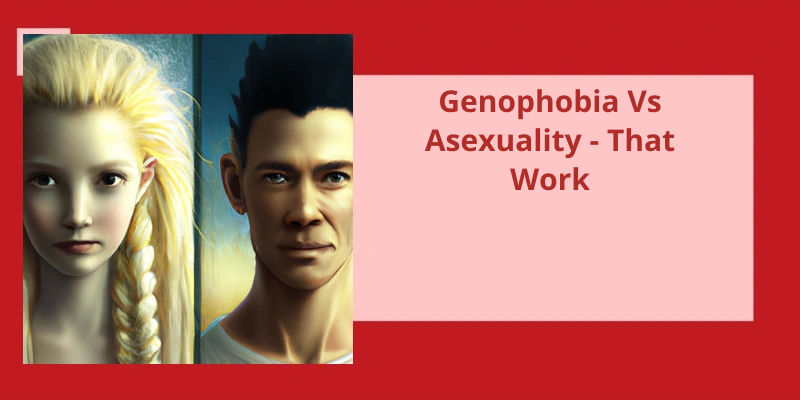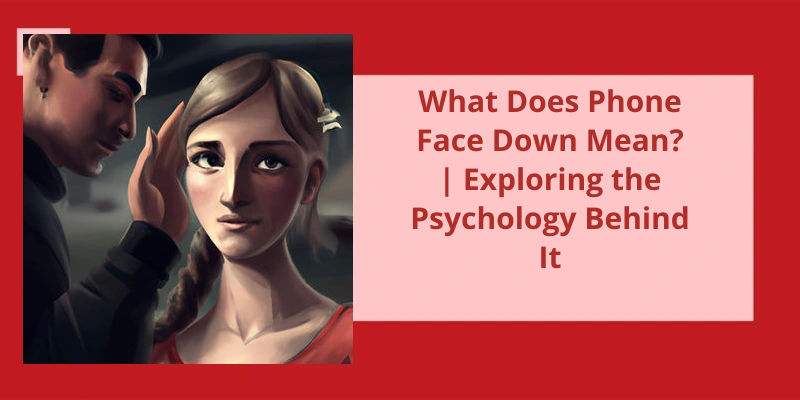Genophobia and asexuality are two terms that are often confused with one another, but they are actually quite different. Genophobia is a fear of sexual relationships or sexual contact, while asexuality is a lack of sexual attraction or desire for sexual activity. Genophobia is a psychological disorder that can cause extreme anxiety and fear, while asexuality is a sexual orientation that is not necessarily a disorder. Both terms can be difficult to understand, but it is important to recognize the differences between them.
What is the process for confirming asexuality?
Asexuality is a valid sexual orientation that should be respected and accepted. Asexuals may not experience sexual attraction or desire sexual contact, but they can still identify as straight, gay, bisexual, or queer. Asexuals should be given the same respect and acceptance as any other sexual orientation.
Asexuality is a unique sexual orientation that is often misunderstood or overlooked. Asexuals may not experience sexual attraction or desire sexual contact, but they can still identify as straight, gay, bisexual, or queer. Asexuals should be given the same respect and acceptance as any other sexual orientation, and the use of shorthand like “Ace” should be embraced and celebrated.
Does asexuality change over time?
Asexuality is a complex orientation that is often misunderstood and classified as a disorder in the dsm-5. It is not a black and white issue, as some people may feel sexual attraction weakly or very occasionally, while others may not feel it at all.
Asexuality is a valid orientation that should be respected and understood. It is important to recognize that it is not a one-size-fits-all experience, as it can vary from person to person and can even shift over time. It is essential to create an inclusive environment for those who identify as asexual.
Could trauma be a cause of asexuality?
the results of the chi-square test of independence indicate that there is a significant relationship between physical trauma and asexual identity among a minority of participants. This suggests that physical trauma may be a factor in the development of asexual identity.
The chi-square test of independence revealed a significant association between physical trauma and asexual identity among a minority of participants. This finding suggests that physical trauma may play a role in the development of asexual identity and should be further explored in future research.
What causes genophobia?
Genophobia is a serious and debilitating fear of sexual intercourse that can have a profound impact on an individuals life. It is often caused by exposure to severe trauma, such as sexual abuse or assault, or by cultural and religious teachings that instill feelings of shame and guilt about sex. It is important to seek professional help if you or someone you know is suffering from genophobia.
Genophobia is a complex and often misunderstood fear of sexual intercourse. It can be caused by a variety of factors, including exposure to trauma, cultural and religious teachings, and even genetics. It is important to recognize the signs of genophobia and seek professional help if necessary. With the right support and treatment, individuals can learn to manage their fear and lead a healthy and fulfilling life.
Does asexuality include kissing?
It is important to remember that asexuality is a valid sexual orientation and that it is possible to be asexual even if you have kissed someone or fallen in love. Kissing and love can be expressions of affection that are not necessarily sexual in nature. Asexuals can still be interested in relationships, even if they are not interested in sex. It is important to respect the boundaries of asexual individuals and to recognize that asexuality is a valid sexual orientation.
What are the signs that I may be asexual?
Asexuality is a valid and important part of the lgbtq+ community. It is important to recognize the signs that you may be asexual, such as not being interested in sex, not being turned on by other people, not relating to other peoples sexuality, and feeling a connection to the label. It is also important to recognize that there are different types of asexuality, such as demisexual and graysexual.
Asexuality is a complex and diverse identity that is often misunderstood. It is important to recognize the signs that you may be asexual and to be open to exploring different types of asexuality. It is also important to be aware of the resources available to those who identify as asexual, such as support groups and online communities. Asexuality is a valid and important part of the lgbtq+ community and should be respected and celebrated.
Is it possible to be asexual and still experience pleasure?
this study has shown that asexual individuals can still experience sexual fantasies and masturbate, even though they do not experience sexual attraction to other people. This suggests that asexuality is a complex phenomenon that is not necessarily defined by a lack of sexual desire.
The findings of this study demonstrate that asexuality is a diverse and multifaceted experience. While asexual individuals may not experience sexual attraction to other people, they can still engage in sexual activities such as fantasizing and masturbating. This highlights the importance of recognizing the complexity of asexuality and the need for further research into this area.
What steps can be taken to help someone with genophobia?
Genophobia is a serious condition that can have a significant impact on a persons life. Fortunately, there are effective treatments available to help manage the symptoms of this phobia. With the help of psychotherapy and medication, individuals can learn to cope with their fear and lead a more fulfilling life.
Genophobia is a treatable condition, and with the right treatment plan, individuals can learn to manage their fear and lead a more fulfilling life. Treatment may involve cognitive behavior therapy and medications, and the exact plan will depend on the individuals needs. With the right help, individuals can overcome their fear and live a life free of fear and anxiety.
Is it possible to cure genophobia?
Genophobia is a real and serious issue that can have a significant impact on a persons life. While there is no universal cure for genophobia, there are ways to cope with and treat the anxiety associated with it. Seeing a psychiatrist, psychologist, or licensed counselor for therapy can help to reduce the fear and anxiety associated with genophobia. Additionally, those experiencing pain during sex should visit their doctor or gynecologist for further assistance. It is important to remember that genophobia is a treatable condition and that help is available.
Does being asexual mean you have no interest in kissing?
Asexual people can have different levels of comfort with physical and romantic relationships. Some asexual people may enjoy cuddling and kissing, while others may identify as aromantic and not be interested in romantic relationships. It is important to remember that asexuality and aromanticism are not mutually exclusive, and that people can be aromantic and not asexual.
Asexuality is a spectrum, and it is important to remember that different people have different levels of comfort with physical and romantic relationships. Some asexual people may enjoy cuddling and kissing, while others may identify as aromantic and not be interested in romantic relationships. It is important to respect the individual preferences of asexual people and to remember that asexuality and aromanticism are not mutually exclusive.
Is it possible to be asexual and still kiss?
Asexuality is a diverse and complex identity that can mean different things to different people. Some asexual people enjoy cuddling and kissing and being in romantic relationships, while others who identify as asexual may also identify as aromantic and not have any interest in romantic relationships.
Asexuality is an important part of the LGBTQ+ community and it is important to recognize and respect the different ways that asexual people express their identity. Asexual people can have different needs and desires when it comes to relationships, and it is important to be open and understanding of these differences.
Conclusion
Asexuality is not a disorder, nor is it a fear of sex. It is simply a lack of sexual attraction or desire for sexual activity. Asexual people should not be judged or dismissed for their lack of sexual attraction. Asexuality is a valid sexual orientation and should be respected and accepted. Asexual people should be allowed to live their lives without fear of judgement or discrimination.






